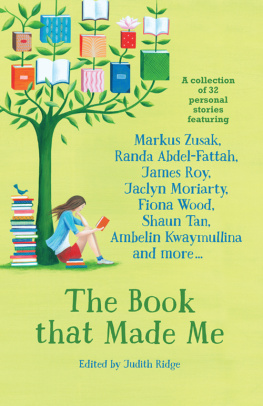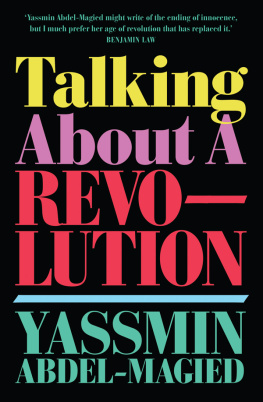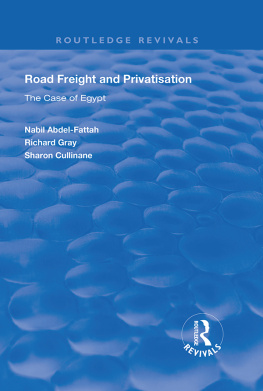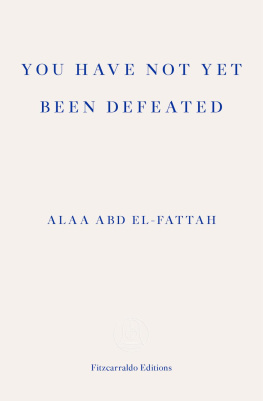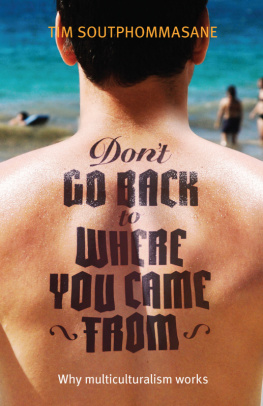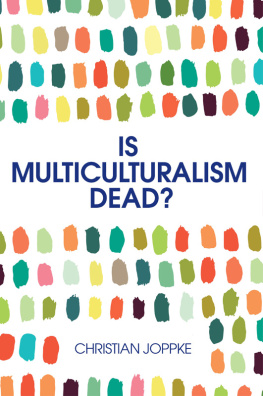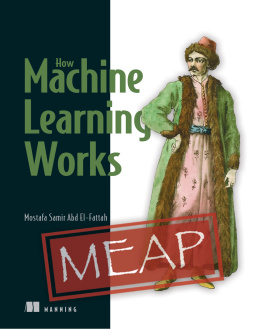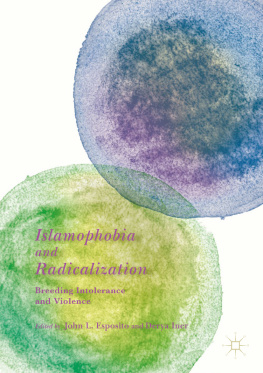
Islamophobia and everyday multiculturalism in Australia
This book explores Islamophobia in Australia, shifting attention from its victims to its perpetrators by examining the visceral, atavistic nature of peoples feelings and responses to the Muslim other in everyday life.
Based on ethnographic fieldwork, Islamophobia and Everyday Multiculturalism sheds light on the problematizations of Muslims amongst Anglo and non-Anglo Australians, investigating the impact of whiteness on minorities various reactions to Muslims. Advancing a micro-interactional, ethnographically oriented perspective, the author demonstrates the ways in which Australias histories and logics of racial exclusion, thinking and expression produce processes in which whiteness socializes, habituates and teaches racializing behaviour, and shows how national and global events, moral panics, and political discourse infiltrate everyday encounters between Muslims and non-Muslims, producing distinct structures of feeling and discursive, affective and social practices of Islamophobia. As such, it will be of interest to social scientists with interests in race and ethnicity, migrationand diaspora and Islamophobia.
Randa Abdel-Fattah is a Research Fellow in the Department of Sociology at Macquarie University, Australia. Her PhD was on Islamophobia, racism and everyday multiculturalism. She is an award-winning novelist and spends her time promoting human rights in relation to migration and multiculturalism through various media outlets, and is a regular speaker throughout Australia.
Studies in Migration and Diaspora
https://www.routledge.com/sociology/series/ASHSER1049
Series Editor:
Anne J. Kershen, Queen Mary University of London, UK
Studies in Migration and Diaspora is a series designed to showcase the interdisciplinary and multidisciplinary nature of research in this important field. Volumes in the series cover local, national and global issues and engage with both historical and contemporary events. The books will appeal to scholars, students and all those engaged in the study of migration and diaspora. Amongst the topics covered are minority ethnic relations, transnational movements and the cultural, social and political implications of moving from over there, to over here.
Experience and Representation
Contemporary Perspectives on Migration in Australia
Keith Jacobs
Expatriate Identities in Postcolonial Organizations
Working Whiteness
Pauline Leonard
Multifaceted Identity of Interethnic Young People
Chameleon Identities
Sultana Choudhry
Lifestyle Migration
Expectations, Aspirations and Experiences
Edited by Michaela Benson and Karen OReilly
International Migration and Rural Areas
Cross-National Comparative Perspectives
Edited by Birgit Jentsch and Myriam Simard
Migration and Domestic Work
A European Perspective on a Global Theme
Edited by Helma Lutz
Negotiating Boundaries in the City
Migration, Ethnicity, and Gender in Britain
Joanna Herbert
Islamophobia and everyday multiculturalism in Australia
Randa Abdel-Fattah
First published 2018
by Routledge
2 Park Square, Milton Park, Abingdon, Oxon OX14 4RN
and by Routledge
711 Third Avenue, New York, NY 10017
Routledge is an imprint of the Taylor & Francis Group, an informa business
2018 Randa Abdel-Fattah
The right of Randa Abdel-Fattah to be identified as author of this work has been asserted by her in accordance with sections 77 and 78 of the Copyright, Designs and Patents Act 1988.
All rights reserved. No part of this book may be reprinted or reproduced or utilised in any form or by any electronic, mechanical, or other means, now known or hereafter invented, including photocopying and recording, or in any information storage or retrieval system, without permission in writing from the publishers.
Trademark notice : Product or corporate names may be trademarks or registered trademarks, and are used only for identification and explanation without intent to infringe.
British Library Cataloguing-in-Publication Data
A catalogue record for this book is available from the British Library
Library of Congress Cataloging-in-Publication Data
A catalog record for this book has been requested
ISBN: 978-1-138-89453-2 (hbk)
ISBN: 978-1-315-17993-3 (ebk)
Typeset in Time New Roman
by Deanta Global Publishing Services, Chennai, India
To my parents forever my role models.
Contents
The noun Islamophobia is defined as fear or hatred of Islam and/or Muslims. Though first used in the 1920s, it gained salience in the closing decades of the twentieth century and common usage following the terrorist attacks in the United States on Tuesday 11 September 2001. There have been a number of scholarly debates on the ways in which patterns of Islamophobic behaviour can be both interpreted and applied, these mainly, as Randa Abdel-Fattah explains in this volume, from the top down. In contrast, in her empirical study Abdel-Fattah approaches contemporary Islamophobia from the grass roots by exploring the way in which the everyday activities of Muslims are interpreted by non-Muslims; her interviewees ranging from the fiercely Islamophobic to the ambivalent, those she categorizes as political Islamophobes and everyday Islamophobes. Whilst this methodology in itself is both original and valuable to all those studying anti-Muslimism, what makes it even more impressive is the fact that the research was carried out by a young (albeit unveiled) Muslim woman.
The geographic focus of this book is Australia, more specifically, Sydney, where the Muslim community represents nearly 5% of the citys population, many originating from Lebanon. In fact, in the Sydney suburb of Lakemba, where some of the research was carried out, Arabic is the most common non-English language. The everyday aspect of Muslim life as researched by the author covers a number of areas, among them religiosity. In the book, she charts the participants reactions to Muslim religious observance. Some of those questioned expressed their discomfort as Christians at the very outward and frequent displays of the observance of Islam; reactions which came from both the political and the everyday Islamophobes. The essentialness of whiteness within Australian political and social culture is highlighted by the way in which the political Islamophobes reacted to the Muslim presence, articulating concerns which are in common with Islamophobics in other continents, as one of the participants stated, Theyve got different mentalities, different attitudes, different values! They believe in different things, you know?. Further criticism was directed at the way the Lebanese Muslims spent their leisure time, crowding restaurants in noisy groups as though those from other religions and nationalities do not! Another source of unease was the female wearing of the burkini an Australian design which was considered unnatural and silly. Why would you wear all those clothes in the water?
A reading of this book emphasizes the way in which, for Islamophobes, every aspect of Muslim life is incorporated into their antipathy; outward expressions of religion, leisure, non-whiteness and the way in which the Muslim body is shielded (by some, if not all, adherents of Islam) from public view. For the participants in Randa Abdel-Fattahs research, it is the otherness of the followers of Islam which is the threat. In their eyes, otherness now equates with terrorist, even if that other is no more than a difference in way of life.





